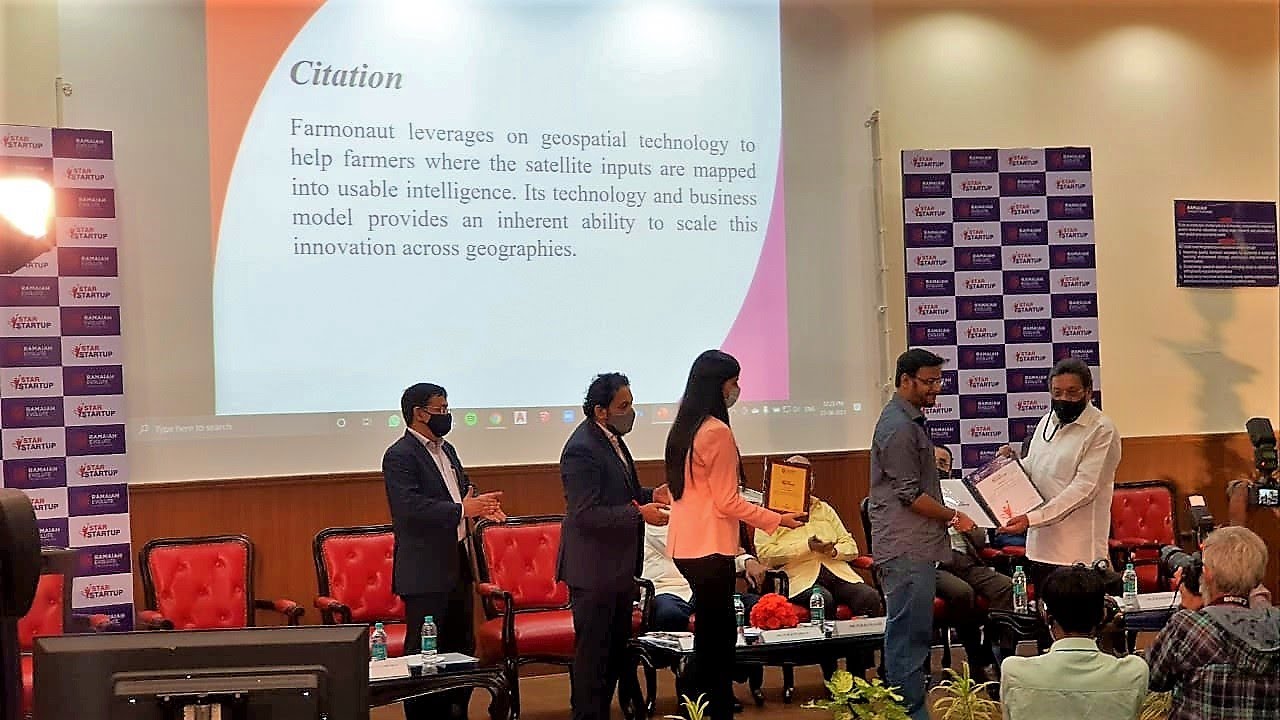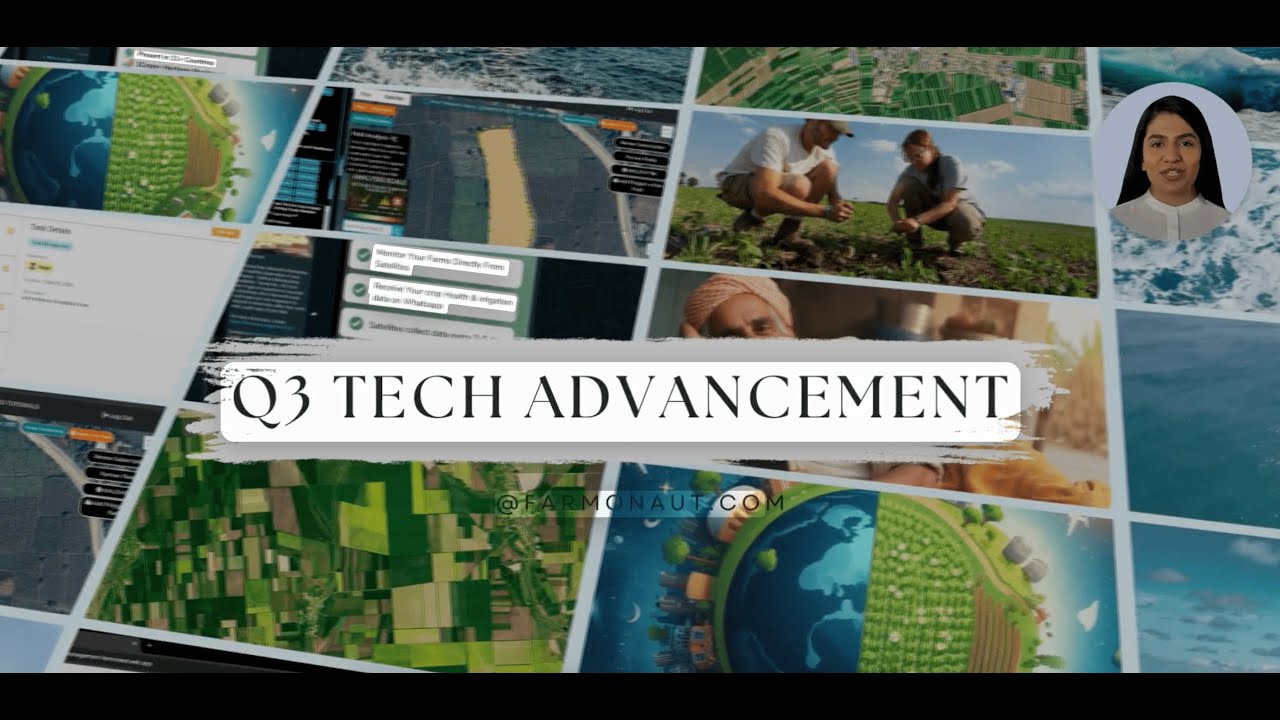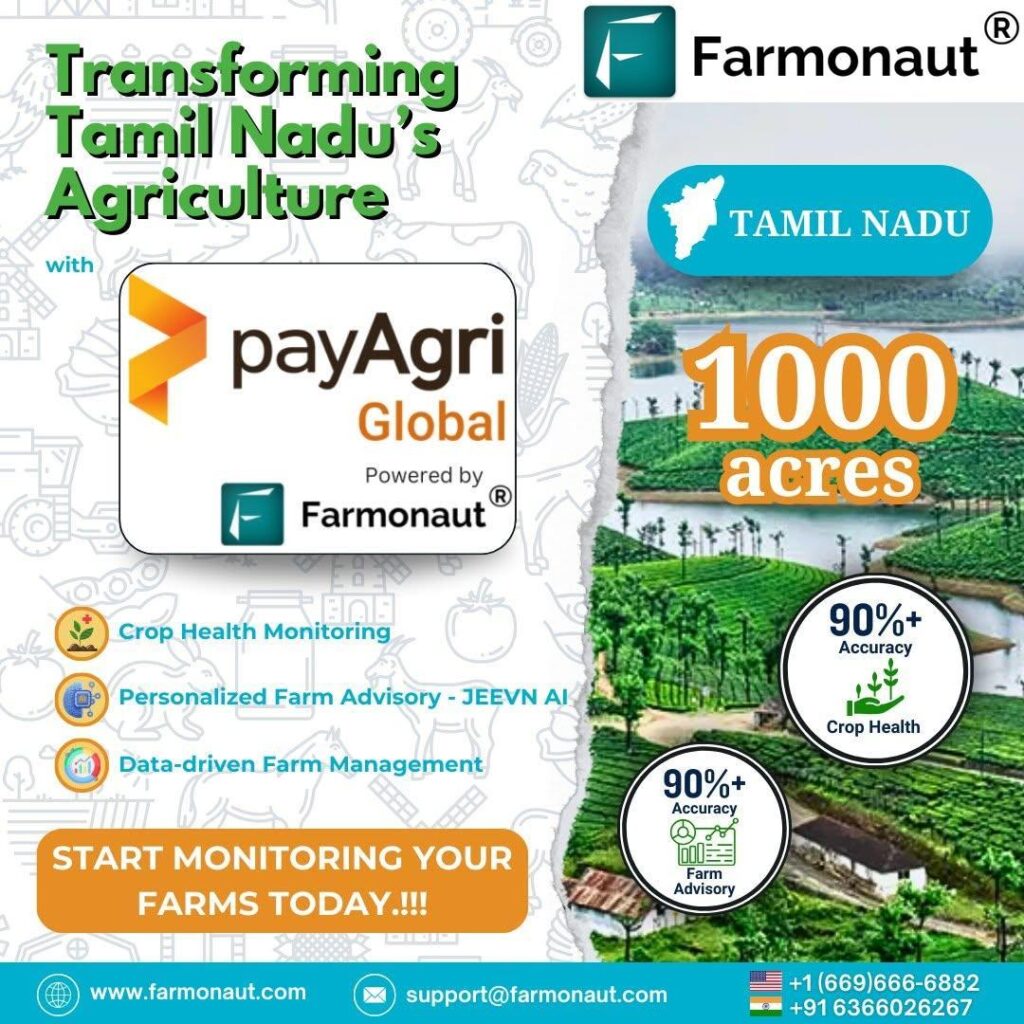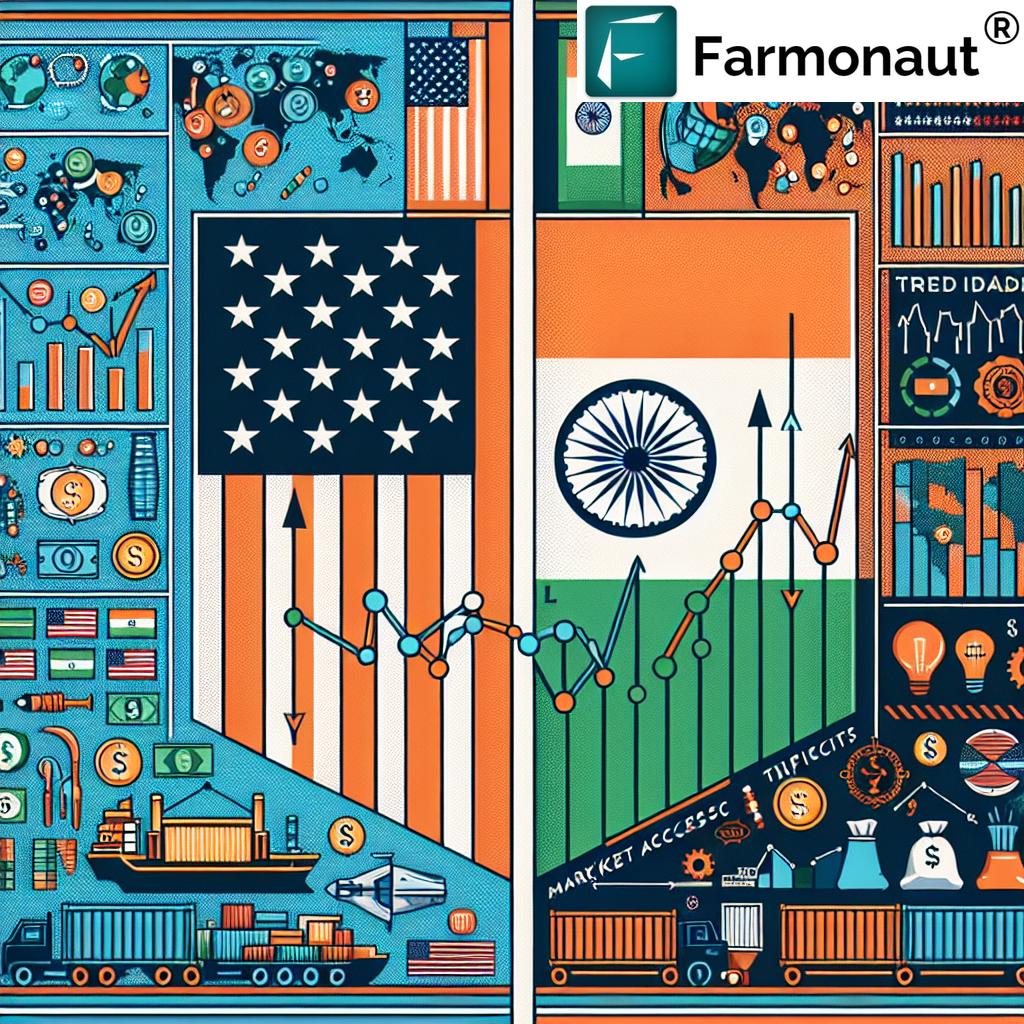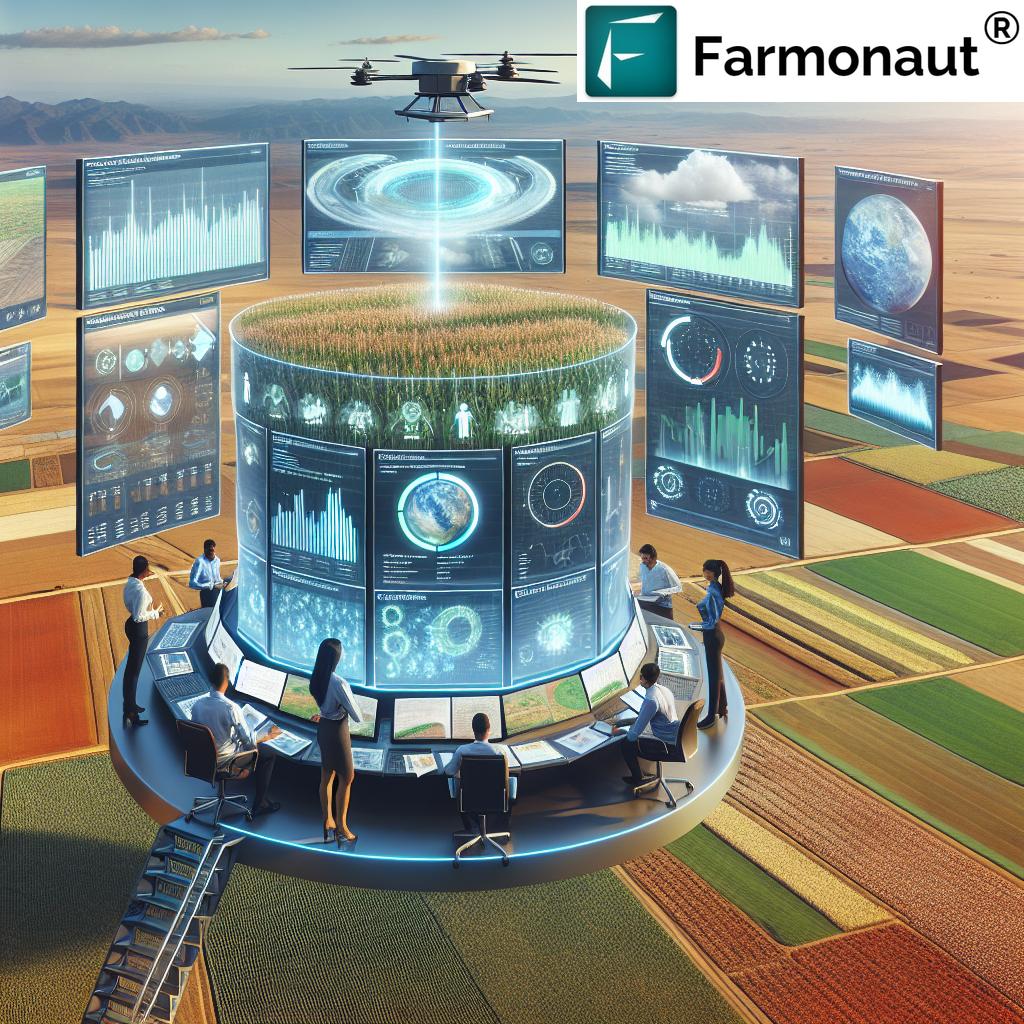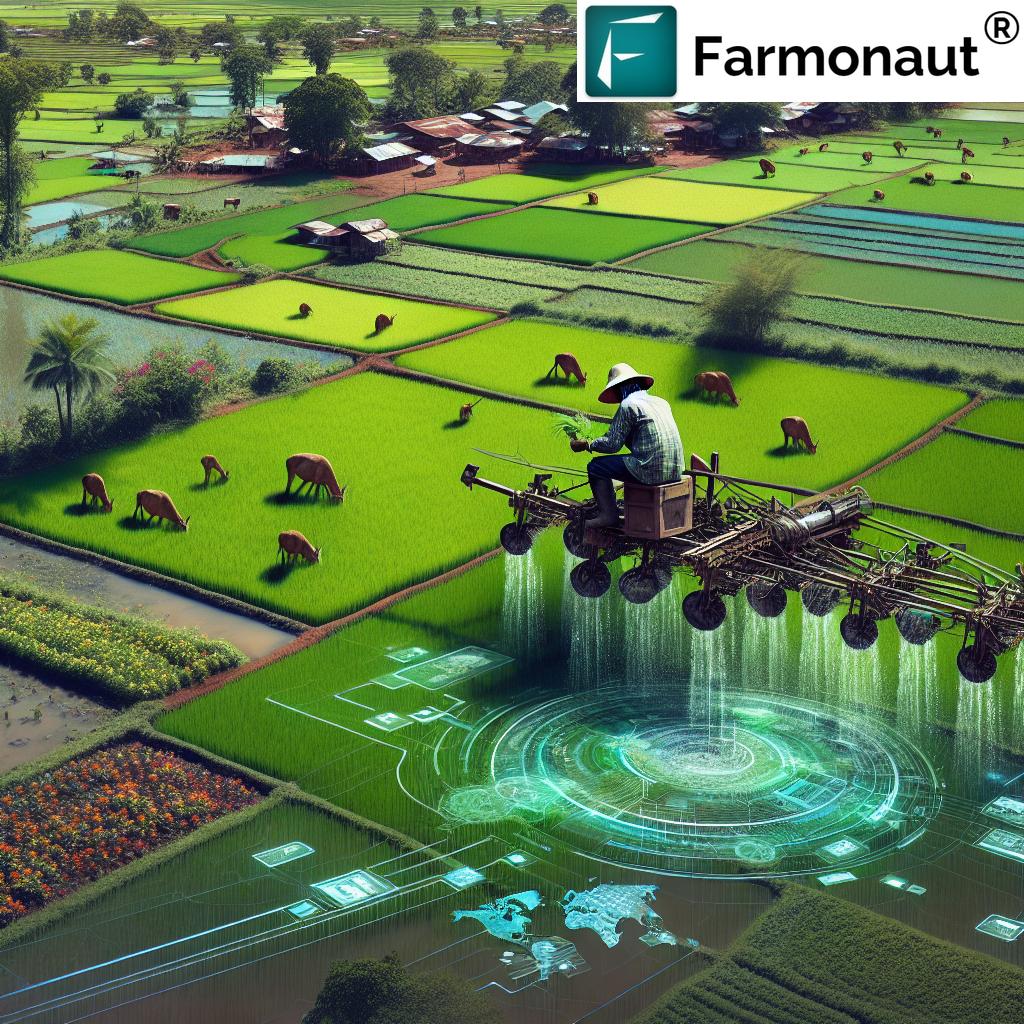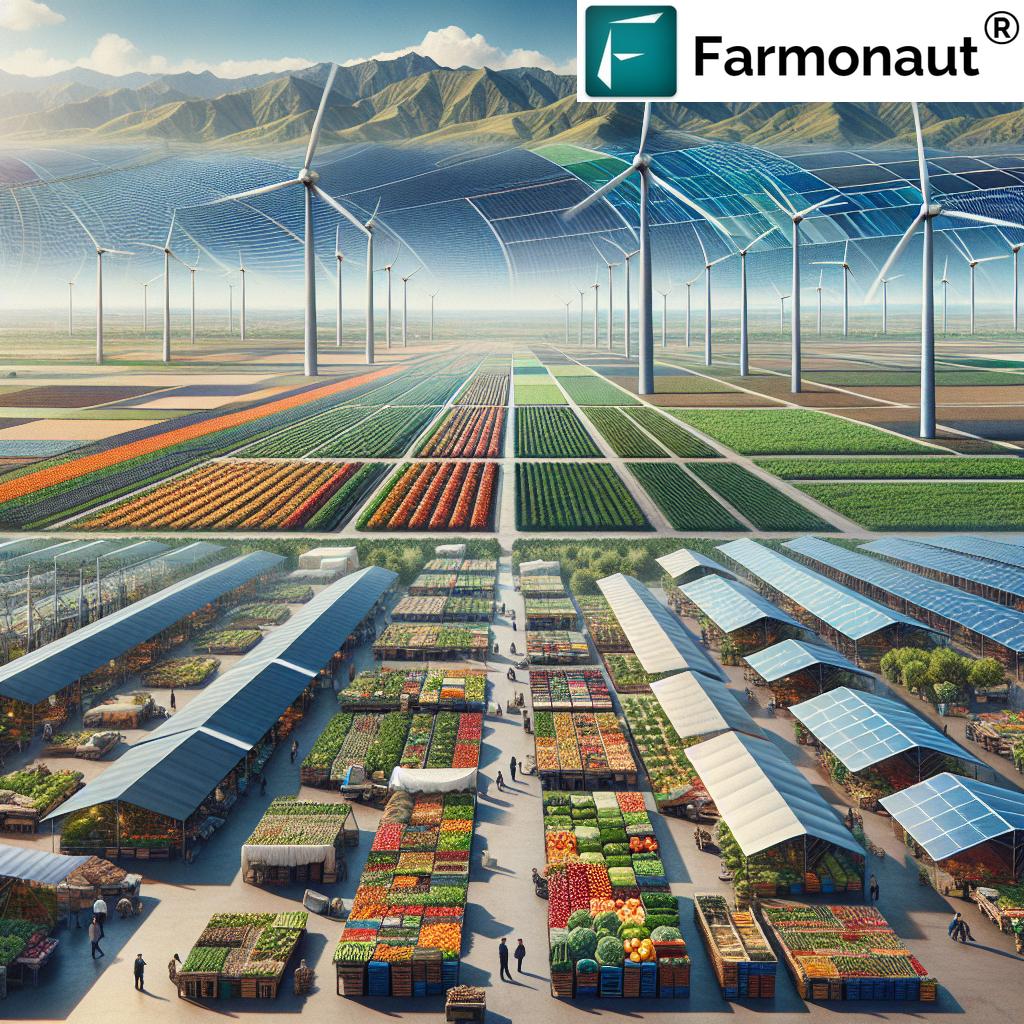Advancing Sustainable Agriculture in China: Farmonaut’s Guide to the Tengtou Agricultural Science Award
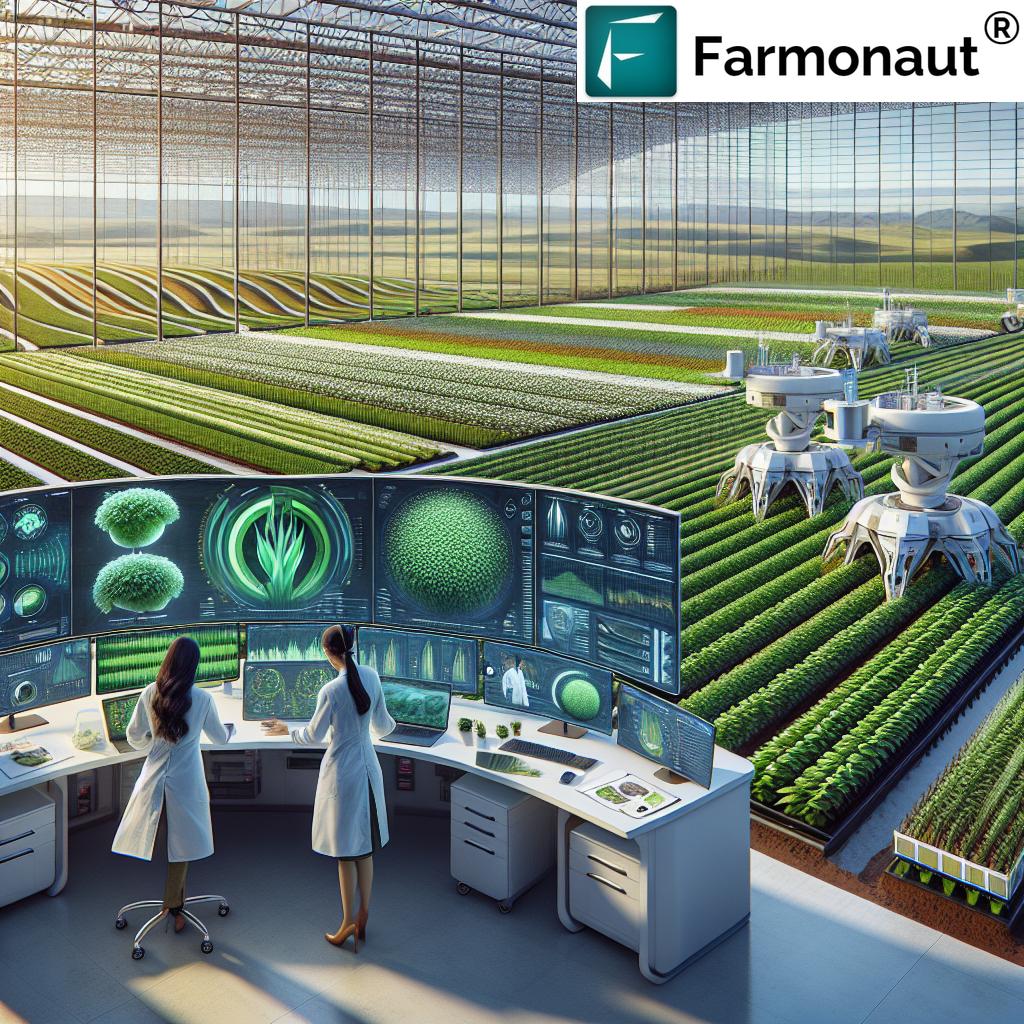
“China’s agricultural research has contributed to a 60% increase in global food production over the past 50 years.”
In the ever-evolving landscape of global agriculture, China has emerged as a powerhouse of innovation and sustainable practices. As we delve into the intricate world of agricultural science and its impact on food security and environmental quality, we at Farmonaut are excited to guide you through the prestigious Tengtou Agricultural Science Award and its significance in advancing sustainable agriculture in China.
The Rise of Sustainable Agriculture in China
Sustainable agriculture in China has become a cornerstone of the nation’s agricultural policy, driven by the need to feed a growing population while preserving environmental resources. The country’s commitment to this cause is evident in its robust research initiatives, innovative farming techniques, and the recognition of outstanding contributions through awards like the Tengtou Agricultural Science Award.
- Precision farming techniques
- Climate-resilient crop varieties
- Advanced irrigation systems
- Soil conservation practices
These advancements in plant science and agronomy have not only revolutionized crop production systems within China but have also had a significant impact on global food security. The integration of cutting-edge technologies, such as remote sensing and AI-driven analytics, has further propelled China’s agricultural sector into a new era of efficiency and sustainability.
The Tengtou Agricultural Science Award: Recognizing Excellence
The Tengtou Agricultural Science Award stands as a beacon of recognition for outstanding contributions to agricultural technology innovations and policy influence. This prestigious accolade serves as a catalyst for continued research and development in the field of sustainable agriculture.
“The Tengtou Agricultural Science Award recognizes top 5% of innovations in sustainable farming practices annually.”
Key aspects of the award include:
- Recognition of groundbreaking research in agronomy
- Emphasis on practical applications of agricultural science
- Promotion of sustainable farming techniques
- Encouragement of collaboration between scientists and farmers
By highlighting exceptional work in the field, the Tengtou Award not only honors individual achievements but also sets benchmarks for the entire agricultural community in China and beyond.
Advancements in Plant Science: Shaping the Future of Agriculture
The rapid advancements in plant science have been instrumental in shaping the future of agriculture in China. These innovations range from the development of drought-resistant crops to the implementation of vertical farming techniques in urban areas.
Some notable advancements include:
- Genetic modification for enhanced crop resilience
- Bio-fortification to improve nutritional content
- Development of pest-resistant varieties
- Precision breeding techniques
These scientific breakthroughs have not only increased crop yields but have also contributed to the overall sustainability of agricultural practices in China.
The Role of Chinese Agriculture Research in Global Food Security
Chinese agriculture research has played a pivotal role in addressing global food security challenges. The country’s commitment to agricultural science and innovation has resulted in significant contributions to international efforts in combating hunger and malnutrition.
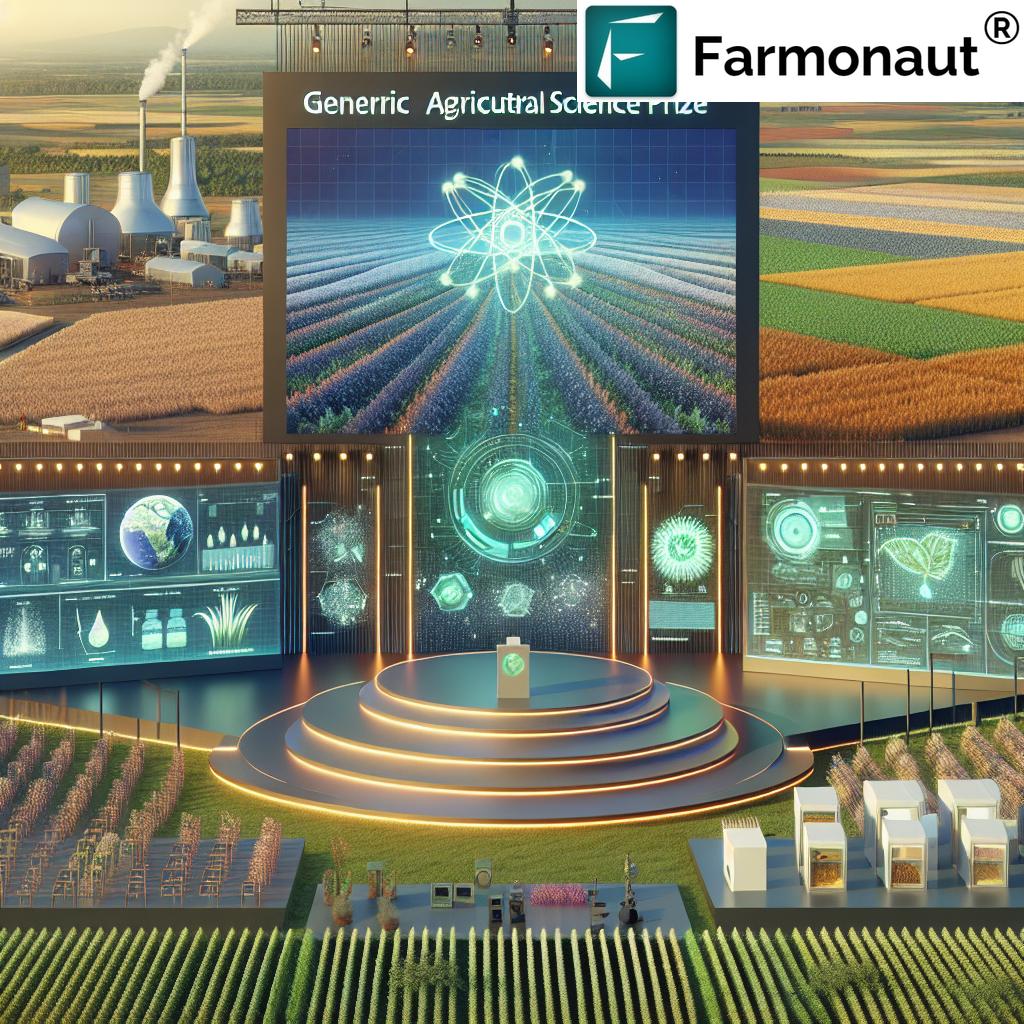
Key areas of impact include:
- Development of high-yield crop varieties
- Innovative farming systems for resource-poor regions
- Knowledge sharing through international collaborations
- Contributions to global agricultural policy discussions
The influence of Chinese agricultural research extends far beyond its borders, shaping practices and policies worldwide.
Climate Change and Sustainable Farming Practices
As the global community grapples with the challenges posed by climate change, Chinese scientists are at the forefront of developing sustainable solutions for agriculture. The impact of changing weather patterns on farming practices has necessitated innovative approaches to ensure food security and environmental conservation.
Sustainable farming techniques being explored include:
- Water-efficient irrigation systems
- Carbon sequestration in agricultural soils
- Agroforestry and intercropping practices
- Climate-smart agriculture technologies
These initiatives not only help mitigate the effects of climate change but also ensure the long-term viability of agricultural systems in China and beyond.
Cutting-Edge Agricultural Technologies: From Precision Farming to Remote Sensing
The integration of cutting-edge technologies has revolutionized agricultural practices in China. Precision farming and remote sensing applications have enabled farmers to optimize resource use and increase productivity while minimizing environmental impact.
Key technologies include:
- Satellite-based crop monitoring systems
- Drone technology for precision application of inputs
- IoT sensors for real-time data collection
- AI and machine learning for predictive analytics
These technologies align closely with Farmonaut’s mission to make precision agriculture accessible and affordable. Our satellite-based farm management solutions complement these industry trends, offering farmers data-driven insights for improved crop management.
Explore Farmonaut’s cutting-edge solutions:
The Importance of Continued Education and Collaboration
The rapid pace of innovation in agricultural science underscores the importance of continued education and collaboration. Chinese institutions are increasingly focusing on training agricultural scientists and fostering partnerships between academia, industry, and government.
Key initiatives include:
- Specialized agricultural science programs in universities
- International exchange programs for researchers
- Industry-academia partnerships for applied research
- Continuous professional development for farmers and agronomists
These efforts ensure that China remains at the cutting edge of agricultural innovation, contributing to global food security and sustainable development.
Key Contributions to Sustainable Agriculture in China
| Innovation/Research Area | Key Contributors/Institutions | Impact on Sustainability | Relevance to Tengtou Award |
|---|---|---|---|
| Precision Farming Techniques | Chinese Academy of Agricultural Sciences | Estimated 30% reduction in water and fertilizer use | Aligns with resource efficiency criteria |
| Climate-Resilient Crop Varieties | China Agricultural University | 25% increase in crop yields under drought conditions | Addresses climate change adaptation |
| Remote Sensing Applications | Institute of Remote Sensing and Digital Earth | Improved crop monitoring over 50 million hectares | Innovative use of technology in agriculture |
| Soil Health Management | Nanjing Agricultural University | 20% increase in soil organic matter content | Contributes to long-term land sustainability |
The Role of Agricultural Policy in Shaping Sustainable Practices
Agricultural policy plays a crucial role in shaping sustainable practices in China. The government’s commitment to sustainable agriculture is reflected in its policies, which incentivize environmentally friendly farming methods and support research in agricultural science.
Key policy areas include:
- Subsidies for adoption of sustainable farming practices
- Regulations on pesticide and fertilizer use
- Support for organic farming initiatives
- Investment in agricultural research and development
These policies not only guide the agricultural sector towards sustainability but also create an environment conducive to innovation and scientific advancement.
Farmonaut’s Contribution to Sustainable Agriculture
At Farmonaut, we are proud to contribute to the advancement of sustainable agriculture through our innovative technologies. Our satellite-based crop health monitoring system aligns with the goals of precision farming, enabling farmers to make data-driven decisions that optimize resource use and improve crop yields.
Explore our API for developers: Farmonaut Satellite API
Access our comprehensive developer documentation: Farmonaut API Developer Docs
Our commitment to making precision agriculture affordable and accessible complements the efforts of Chinese researchers and policymakers in promoting sustainable farming practices. By leveraging cutting-edge technology, we empower farmers to implement environmentally friendly methods while maintaining productivity.
Future Prospects and Challenges
As we look to the future of sustainable agriculture in China, we see both exciting prospects and significant challenges. The continued advancement of agricultural science and technology promises further improvements in crop yields, resource efficiency, and environmental protection.
Key areas for future development include:
- Integration of AI and big data in farm management
- Development of novel bio-based pesticides and fertilizers
- Expansion of urban agriculture systems
- Adaptation strategies for extreme weather events
However, challenges such as soil degradation, water scarcity, and the impact of climate change will require ongoing attention and innovative solutions from the agricultural science community.
Conclusion: A Collaborative Path Forward
The advancement of sustainable agriculture in China, as exemplified by the Tengtou Agricultural Science Award, represents a collaborative effort between scientists, policymakers, farmers, and technology providers like Farmonaut. By recognizing and supporting innovative research and practical applications, China is not only securing its own food future but also contributing significantly to global agricultural sustainability.
As we move forward, the continued emphasis on education, research, and the adoption of cutting-edge technologies will be crucial in addressing the complex challenges facing agriculture in the 21st century. The Tengtou Agricultural Science Award serves as a beacon, guiding the way towards a more sustainable and food-secure future for China and the world.
FAQ Section
Q: What is the Tengtou Agricultural Science Award?
A: The Tengtou Agricultural Science Award is a prestigious recognition given to outstanding contributions in agricultural technology innovations and policy influence in China. It aims to promote sustainable farming practices and honor excellence in agricultural research.
Q: How does Chinese agricultural research contribute to global food security?
A: Chinese agricultural research contributes to global food security through the development of high-yield crop varieties, innovative farming systems for resource-poor regions, knowledge sharing through international collaborations, and contributions to global agricultural policy discussions.
Q: What are some key sustainable farming techniques being explored in China?
A: Key sustainable farming techniques in China include water-efficient irrigation systems, carbon sequestration in agricultural soils, agroforestry and intercropping practices, and climate-smart agriculture technologies.
Q: How is Farmonaut contributing to sustainable agriculture?
A: Farmonaut contributes to sustainable agriculture by providing satellite-based crop health monitoring systems, enabling precision farming practices, and offering data-driven insights for improved crop management, all of which help optimize resource use and improve crop yields sustainably.
Q: What are the main challenges facing sustainable agriculture in China?
A: The main challenges include soil degradation, water scarcity, the impact of climate change, and the need to increase food production while minimizing environmental impact. Ongoing research and innovation are crucial to addressing these challenges.


